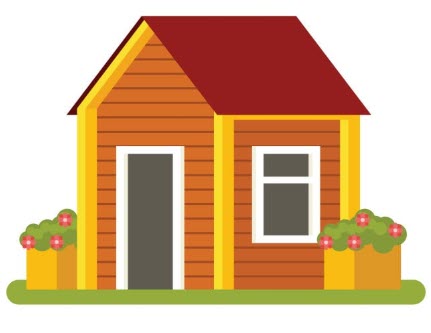

In many areas of the country, it is hard to buy a house because there are not many houses for sale. One reason for this is that so many people have fixed rate mortgages below 4% (me) or even below 3% (many others). Many of these people might want to sell and buy a new house but do not want to get an interest rate that is 6% or 7%. For example, someone in a starter home might want to move into a larger one but the high interest rates prevent them from doing so. That keeps a starter home off the market that an apartment dweller can't buy. You get the idea. I try to abide by the policy of not telling your boss about a problem unless you have a solution, so here is an idea that I think will make a significant difference.
In a nutshell, make it easier (possible?) for people to keep their existing mortgage but change the house that is the collateral behind it. So, if I want to move into a bigger house, I keep my 3.25% mortgage whose balance is, let’s say $100,000. Since the new house is likely more expensive, let’s say I need a second mortgage that is also $100,000. That mortgage would be at current rates, which might be 6.75%. However, the homeowner’s average rate of the two loans would be a much more palatable 5.00%
Why would a bank want to do this? They would much rather have a $200,000 loan at 6.75%. Well, duh, of course. Except they aren’t getting that higher interest loan. People are sitting on their homes and not getting new mortgages. From the banker’s perspective, if option 1 is a $100,000 loan at 3.25% and option 2 is a $100,000 loan at 3.25% and a $100,000 loan at 6.75%, wouldn’t every one want option 2?
Another idea to grease the skids a little more would be for the government to offer a reduced tax rate on income from those loans, such as the 3.25 %, $100,000 loan. Call it a transfer loan because it has been transferred from one house to another. In the long run the IRS should net more money because what they lose on the lower interest loan, they gain back from the higher interest loan that wouldn’t have existed if the homeowner didn’t have the option keep their low interest loan. The tax incentive might just kick start the banks hesitant to do this because it is a bit of a hassle. See below.
I talked to a friend who worked at bank doing loans for many years. He liked the idea but pointed out numerous complications. One was that in the case of two loans on the house, who would get paid first in the event of a default? That is a fair point. To mitigate this risk, maybe these loans require a lower loan to value number, say of 70% instead of a typical 80%. Maybe there is an equitable way to pay them off proportionally based on the outstanding debt and/or how much time remains on the mortgage. Another solution would be to have a single loan with a blended rate instead of actually having two loans. There are probably other similar complications but they are likely fixable with a change or two in laws. Maybe those law changes can be temporary until the current housing crunch lessens. I have no precise suggestions to offer at this time but I am sure some creative people in the field could come up with some. It is an opportunity to make money, isn't it?
A first argument against this proposal is that it might heat up a housing market already with limited inventory, which is part of the problem, and just result in further price increases and less affordability. That is a fair concern but I don’t think it will happen. Another part of the housing problem is builders are more interested in building high end homes than low end homes because they make more money. This idea encourages people to build more expensive houses and frees up starter homes. No, it does nothing to increase the total number of starter homes, but one idea rarely solves all problems.
A second argument is it might cause average home costs to go down, which nobody likes. True enough, but all assets have their ups and downs. Since we have recently gone through a period of rapid growth in home values, a little decline will not cause too much pain. I am one of the people whose home value might decrease but I would be in favor of these new loans since it will help many people.
Please let me know what you think. Do you think this would work? Is there a detail I missed?

